10 Best Herbal Decoctions For Lice
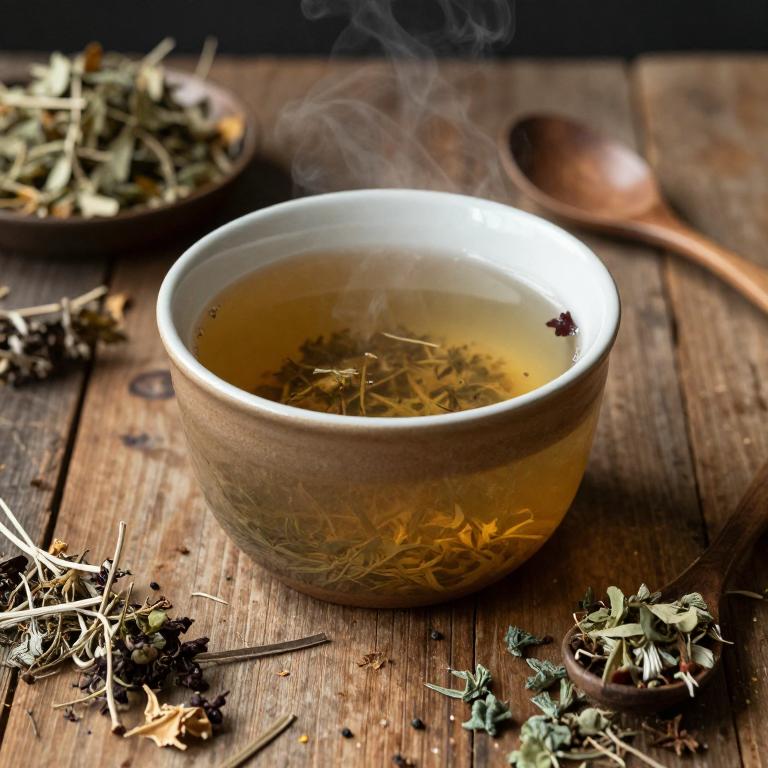
Herbal decoctions for lice are traditional remedies that use a combination of natural ingredients to combat head lice infestations.
Common herbs such as lavender, rosemary, and mint are often included for their antiparasitic and soothing properties. These decoctions are typically prepared by boiling the herbs in water and then applying the resulting liquid to the hair and scalp. While they may not completely eliminate lice on their own, they can help weaken the parasites and reduce their reproduction.
It is important to use these remedies in conjunction with standard comb-out treatments for best results.
Table of Contents
- 1. Eucalyptus (Eucalyptus globulus)
- 2. English lavender (Lavandula angustifolia)
- 3. Melaleuca (Melaleuca alternifolia)
- 4. Rosemary (Rosmarinus officinalis)
- 5. Wormwood (Artemisia absinthium)
- 6. Lemon grass (Cymbopogon citratus)
- 7. Thyme (Thymus vulgaris)
- 8. Ceylon cinnamon (Cinnamomum zeylanicum)
- 9. Common teucrium (Teucrium marum)
- 10. White cedar (Thuja occidentalis)
1. Eucalyptus (Eucalyptus globulus)

Eucalyptus globulus, commonly known as the Tasmanian blue gum, has been traditionally used in herbal medicine for its potent aromatic and antiparasitic properties.
Herbal decoctions made from the leaves of Eucalyptus globulus are believed to possess natural insecticidal effects that may help in the treatment of lice infestations. The active compounds in the decoction, such as eucalyptol and other terpenoids, are thought to disrupt the nervous system of lice, leading to their paralysis and eventual death. While some anecdotal evidence and traditional practices support the use of eucalyptus globulus decoctions for lice, more scientific research is needed to confirm its efficacy and safety.
Nonetheless, it remains a popular alternative remedy in certain regions, often used in conjunction with other natural or conventional treatments.
2. English lavender (Lavandula angustifolia)

Lavandula angustifolia, commonly known as English lavender, has been traditionally used in herbal medicine for its antifungal and antiparasitic properties.
Herbal decoctions made from dried lavender flowers are believed to possess properties that may help in the treatment of lice infestations due to their essential oils, such as lavandins and linalool. These compounds are thought to disrupt the nervous system of lice, leading to their immobilization or death. While some anecdotal evidence suggests that lavender decoctions may help reduce lice populations, scientific research on their efficacy is limited.
As a complementary treatment, lavender decoctions can be used alongside conventional lice treatments, but they should not replace medically proven methods without professional guidance.
3. Melaleuca (Melaleuca alternifolia)
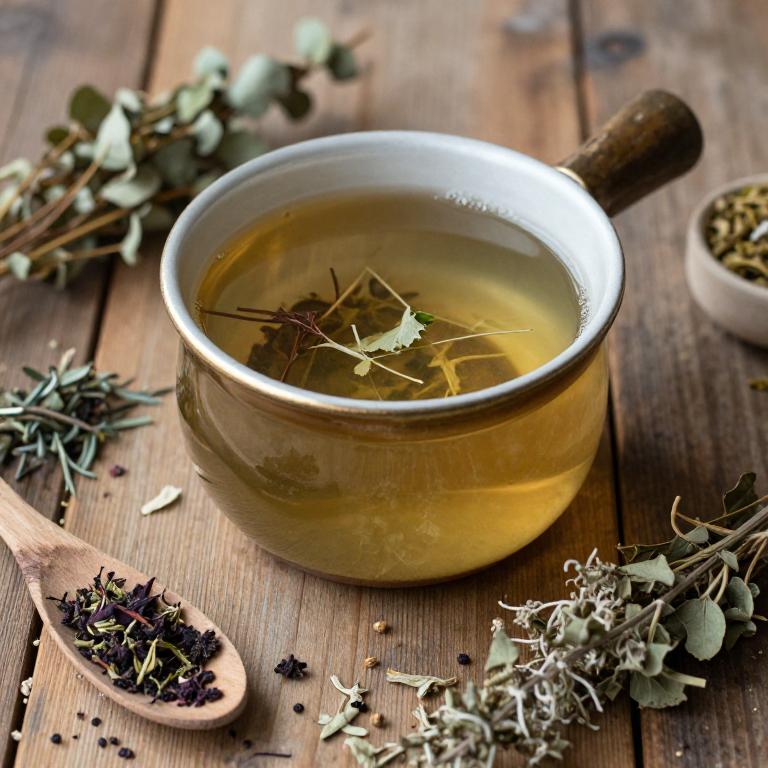
Melaleuca alternifolia, commonly known as tea tree oil, is often used in herbal decoctions to combat lice due to its potent antifungal and antibacterial properties.
These decoctions typically involve infusing the oil into a warm water solution to create a soothing and effective treatment for infested hair. The active compounds in tea tree oil, such as terpinen-4-ol, disrupt the exoskeleton of lice, leading to their dehydration and eventual death. While some studies suggest its efficacy in reducing lice populations, results may vary, and it is often recommended as a complementary treatment alongside conventional methods.
Users should exercise caution, as undiluted tea tree oil can cause skin irritation, and it is advisable to perform a patch test before full application.
4. Rosemary (Rosmarinus officinalis)

Rosmarinus officinalis, commonly known as rosemary, has been traditionally used in herbal decoctions to treat lice due to its strong aromatic compounds and antimicrobial properties.
When prepared as a decoction, rosemary leaves are boiled in water to extract their active components, which are believed to have insecticidal effects against head lice. The essential oils in rosemary, such as camphor and cineole, are thought to disrupt the nervous system of lice, leading to their paralysis or death. This natural remedy is often preferred by those seeking non-toxic alternatives to chemical lice treatments.
While rosemary decoctions may help reduce lice infestations, they are typically used in conjunction with combing and other methods for optimal results.
5. Wormwood (Artemisia absinthium)
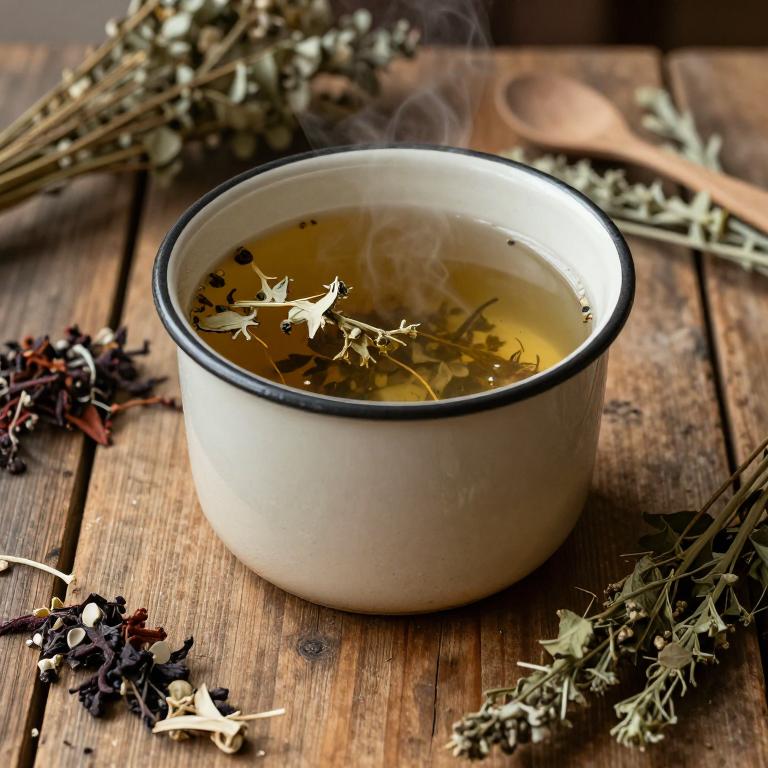
Artemisia absinthium, commonly known as wormwood, has been traditionally used in herbal decoctions to combat lice due to its potent antiparasitic properties.
The plant contains compounds such as thujone and other essential oils that may disrupt the life cycle of lice by affecting their nervous system. To prepare the decoction, the dried leaves and stems of artemisia absinthium are simmered in water for several minutes, creating a concentrated herbal infusion. This decoction can be applied topically to the scalp or used as a rinse to suffocate and repel lice.
However, due to the potential toxicity of thujone, it is important to use artemisia absinthium with caution and under the guidance of a qualified herbalist or healthcare professional.
6. Lemon grass (Cymbopogon citratus)
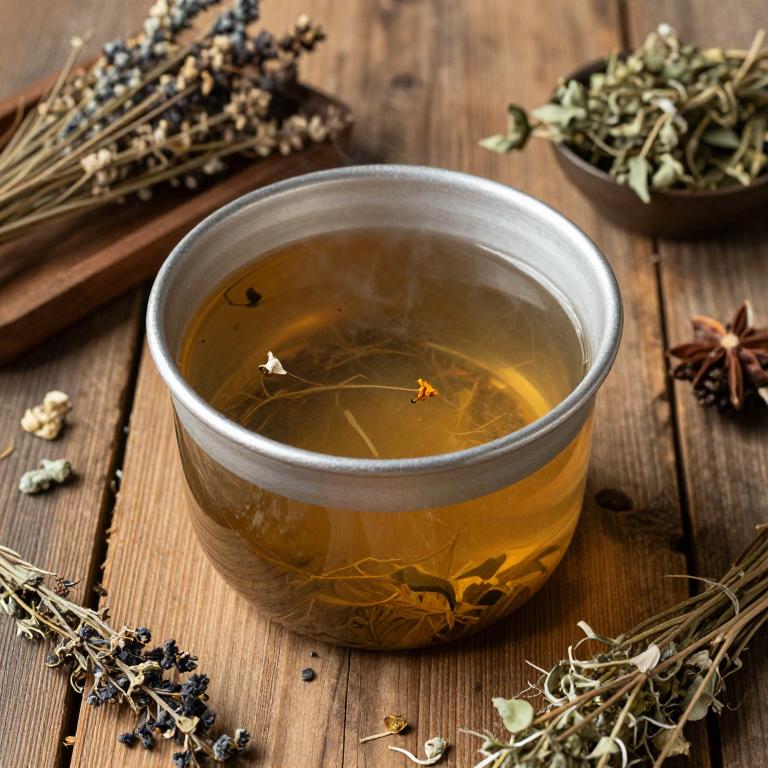
Cymbopogon citratus, commonly known as lemon grass, has been traditionally used in herbal remedies for its potential efficacy against lice.
The essential oils extracted from this herb, particularly citral and geraniol, exhibit insecticidal properties that may help in repelling or eliminating lice. Herbal decoctions made from dried lemon grass are often prepared by boiling the leaves in water, creating a potent solution that can be applied to the scalp. Some studies suggest that these decoctions may disrupt the life cycle of lice by affecting their nervous system or inhibiting their ability to attach to hair.
While more research is needed, lemon grass decoctions are considered a natural and alternative option for those seeking lice treatment without synthetic chemicals.
7. Thyme (Thymus vulgaris)

Thymus vulgaris, commonly known as thyme, has been traditionally used in herbal medicine for its potent antiseptic and antimicrobial properties.
Herbal decoctions made from thyme are believed to help in the treatment of lice due to the presence of active compounds like thymol, which can disrupt the exoskeleton of lice and inhibit their growth. While there is limited scientific research specifically on thyme decoctions for lice, anecdotal evidence suggests that its strong aroma and natural properties may help repel or kill lice when applied topically. Some natural remedy practitioners recommend using thyme-infused oils or decoctions as part of a holistic approach to lice infestation, often in conjunction with combing and other traditional methods.
However, it is important to consult with a healthcare professional before relying solely on herbal treatments for lice, as effectiveness and safety can vary.
8. Ceylon cinnamon (Cinnamomum zeylanicum)
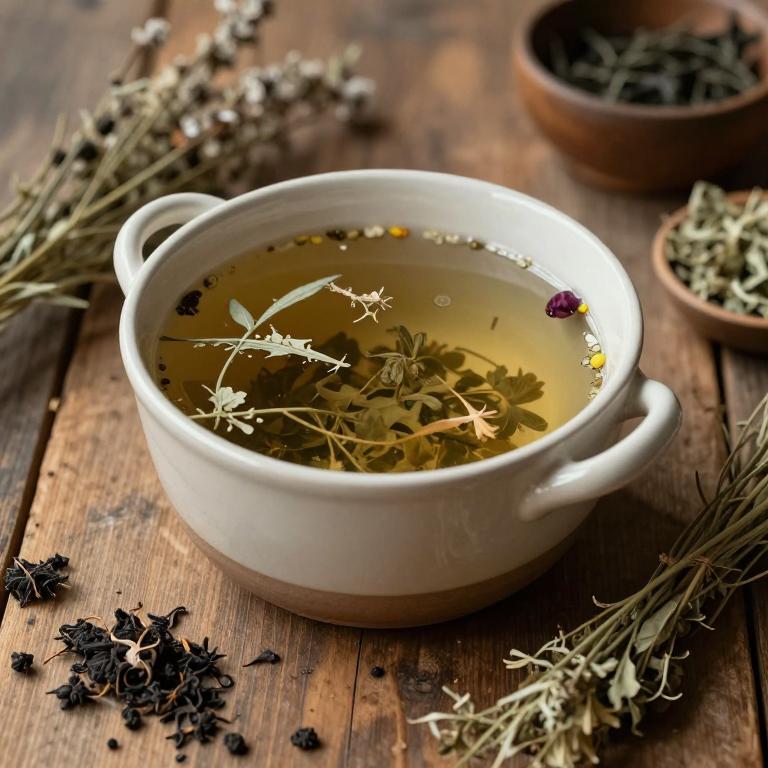
Cinnamomum zeylanicum, commonly known as cinnamon, has been traditionally used in herbal medicine for its antiparasitic properties.
When prepared as a decoction, the bark of this plant contains essential oils and compounds that may help in repelling or eliminating lice. The aromatic compounds in cinnamon decoctions, such as cinnamaldehyde, are believed to disrupt the nervous systems of lice, making them less active or causing them to detach from the host. While some anecdotal evidence supports its use, scientific research on its efficacy against lice is limited.
As a natural remedy, cinnamon decoctions can be used as a complementary treatment alongside other proven lice removal methods.
9. Common teucrium (Teucrium marum)
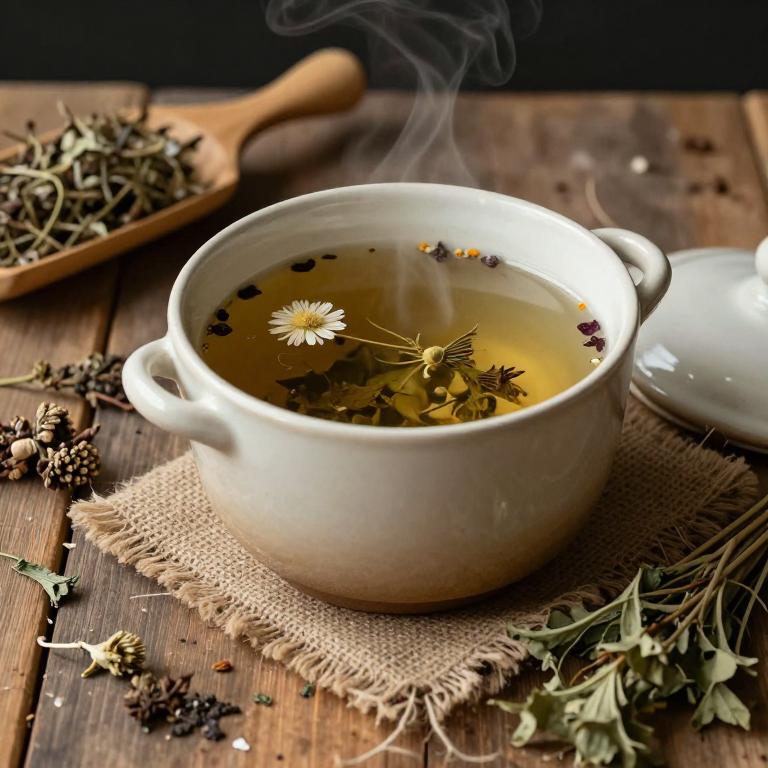
Teucrium marum, commonly known as red stem germander, has been traditionally used in herbal medicine for its potential antiparasitic properties.
Herbal decoctions made from the dried leaves and stems of Teucrium marum are believed to help in the treatment of lice infestations due to their volatile oils and tannins, which may have insecticidal effects. These decoctions are typically prepared by simmering the plant material in water for several minutes to extract the active compounds. While some anecdotal evidence supports its use, scientific research on its efficacy against lice is limited, and it is often used as a complementary therapy alongside conventional treatments.
As with any herbal remedy, it is advisable to consult a healthcare professional before use, especially for children or individuals with known allergies.
10. White cedar (Thuja occidentalis)
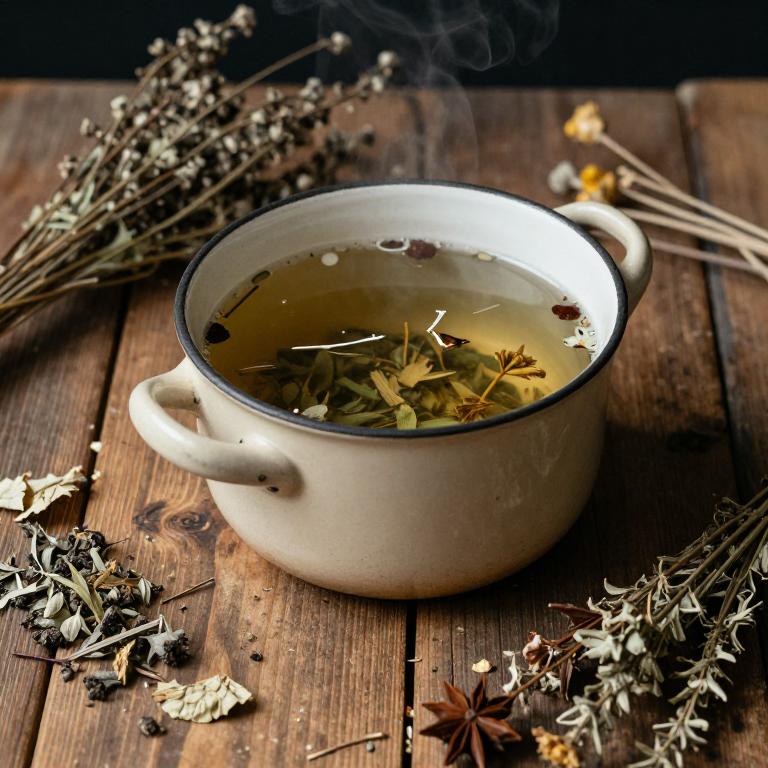
Thuja occidentalis, commonly known as northern white cedar, has been traditionally used in herbal medicine for its potential antiparasitic properties.
Herbal decoctions made from the bark or leaves of thuja occidentalis are believed to contain compounds that may help in the treatment of lice infestations. While scientific evidence supporting its efficacy against lice is limited, some practitioners recommend using thuja-based remedies as a natural alternative to conventional treatments. These decoctions are often prepared by simmering the dried plant material in water for several hours.
However, it is important to consult with a healthcare professional before using thuja occidentalis, as it may have potential side effects and interactions with other medications.